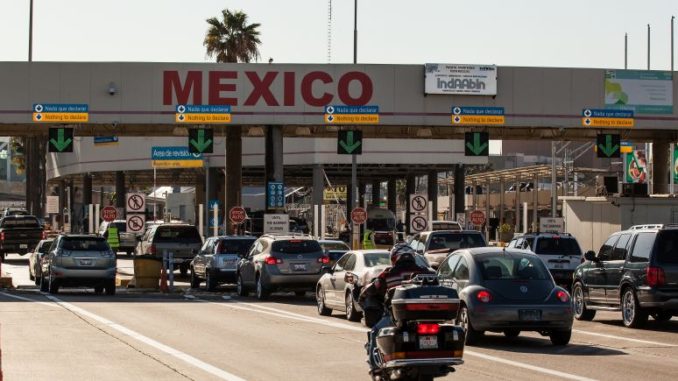
On Saturday morning, a Mexican citizen who had been living in the United States illegally was deported back across the border. He leaves behind a wife and a young daughter; the daughter is turning three and has spina bifida. Medina Franco, a 49 year old landscaper, is the primary source of income for the family, who will be further reliant on assistance to deal with the child’s treatment. Franco had applied to stay in the country using the proper legal process and had, under Obama, been granted leniency. An attempt to renew, filed within the required time frame, was rejected under the Trump administration. (Napierville Patch)
Now, the rest of the story: Franco’s request for leniency was denied because he had previously entered the country illegally not one but three times; he had a conviction in 2003 for selling a false ID card; and he had been arrested for simple battery after an argument with his wife. Also, as noted by ICE, stays are not intended to provide a permanent means of remaining in the country. They are meant to be temporary measures while a person completes their efforts to become a legal citizen or resident.
Franco did not rage against his deportation. He continued to file requests and plead his case, but shortly before boarding the plane, he explained his situation this way to the Chicago Tribune:
“There are laws for a reason. I know that. I understand. If there’s any kind of forgiveness or I could just say I’m sorry. … This will be hard on her.”
Franco’s daughter, Joyce, has myelomeningocele. From the NIH:
Myelomeningocele is the most severe form of spina bifida. It happens when parts of the spinal cord and nerves come through the open part of the spine. It causes nerve damage and other disabilities.
The girl has responded well to treatment, but the treatments are significant and ongoing, ranging from shunts in her brain to relieve excess fluid to catheters for urine removal. Her condition has no direct bearing on the crimes her father committed, but because of the additional stress on the child and the distinct possibility she may die before he can legally see her again, it has caused some to argue in favor of leniency… especially as the one violent arrest was waved off and the mother stayed with him, and he has apparently been reformed for years.
But it was an arrest for violence. He has been arrested for fraud. He has repeatedly entered the country illegally – and, as brought up during the decision to take children from parents crossing the border, there is a reason why a second illegal crossing is a felony instead of a misdemeanor. Other people throughout the country regularly go to jail for nonviolent crimes and are kept from their children, including children with life-threatening injuries. On the other side of that argument, however, people who to to jail are typically incarcerated near enough to the place of their offence that families can visit them – and those visitations can be key for maintaining a family bond. Such bonds increase chances of rehabilitation and also increase the chances of a child growing into a contributing member of society.
It’s complicated. There are, in this case, multiple “correct” answers, all of which are viewed as others as incorrect.
This is one incident among hundreds of thousands. All of them have different circumstances, and the resolutions of many would be considered fairly apparent by all but the most radical among us… deporting murderous gang members, for example, or allowing a four-day stay as a person’s application to become a citizen finishes its successful processing.
The simple answers are always available… blanket amnesty, draconian enforcement. But both are utter failures, taking a toll on our society. Immigration is a complicated issue, as are most issues. That’s why we have Congresses, to allow dozens of educated, experienced adults to hash out the complexities associated with state or federal problems and enact laws addressing them. Encouraging a President or a Governor to take the lead on such issues is inviting catastrophe.
